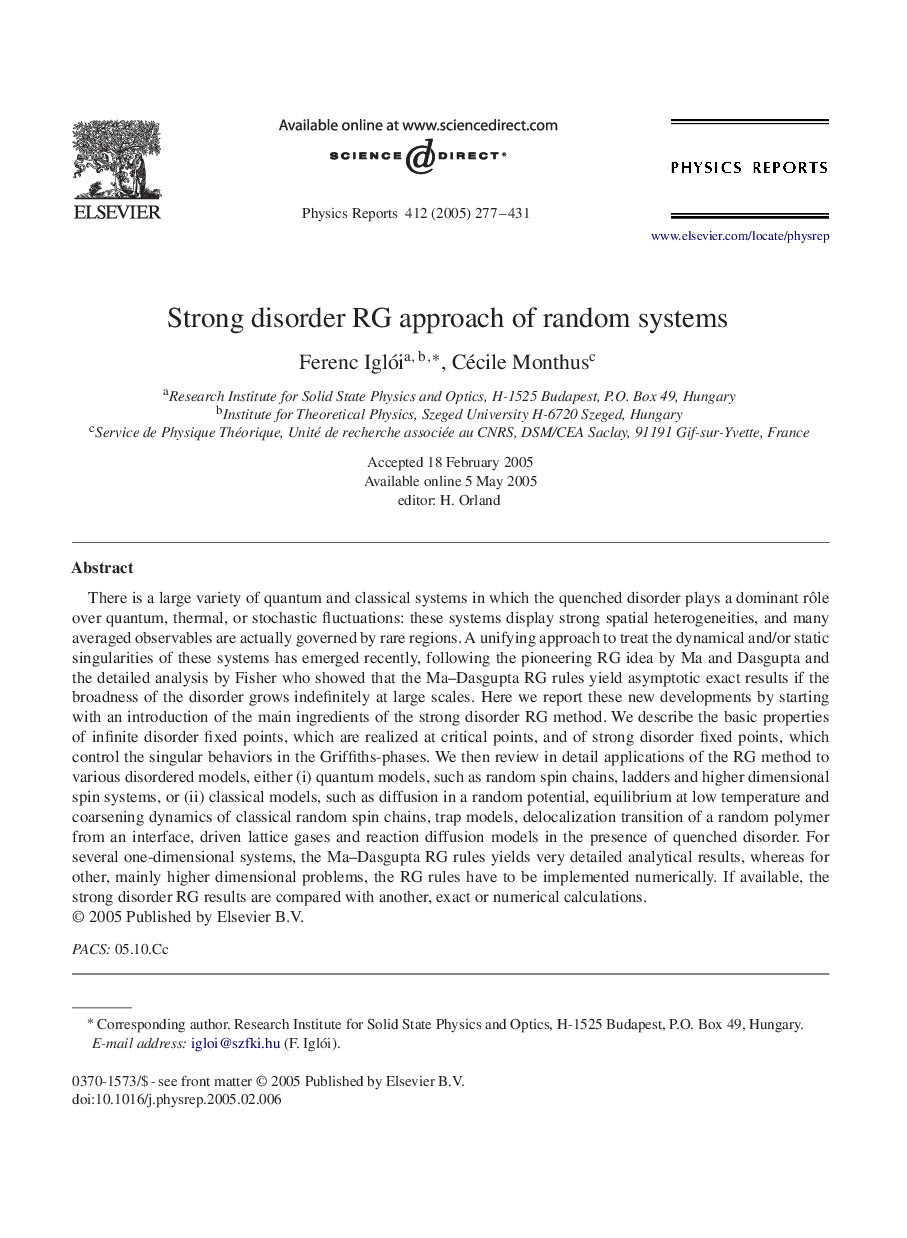| Article ID | Journal | Published Year | Pages | File Type |
|---|---|---|---|---|
| 9871307 | Physics Reports | 2005 | 155 Pages |
Abstract
There is a large variety of quantum and classical systems in which the quenched disorder plays a dominant rôle over quantum, thermal, or stochastic fluctuations: these systems display strong spatial heterogeneities, and many averaged observables are actually governed by rare regions. A unifying approach to treat the dynamical and/or static singularities of these systems has emerged recently, following the pioneering RG idea by Ma and Dasgupta and the detailed analysis by Fisher who showed that the Ma-Dasgupta RG rules yield asymptotic exact results if the broadness of the disorder grows indefinitely at large scales. Here we report these new developments by starting with an introduction of the main ingredients of the strong disorder RG method. We describe the basic properties of infinite disorder fixed points, which are realized at critical points, and of strong disorder fixed points, which control the singular behaviors in the Griffiths-phases. We then review in detail applications of the RG method to various disordered models, either (i) quantum models, such as random spin chains, ladders and higher dimensional spin systems, or (ii) classical models, such as diffusion in a random potential, equilibrium at low temperature and coarsening dynamics of classical random spin chains, trap models, delocalization transition of a random polymer from an interface, driven lattice gases and reaction diffusion models in the presence of quenched disorder. For several one-dimensional systems, the Ma-Dasgupta RG rules yields very detailed analytical results, whereas for other, mainly higher dimensional problems, the RG rules have to be implemented numerically. If available, the strong disorder RG results are compared with another, exact or numerical calculations.
Related Topics
Physical Sciences and Engineering
Physics and Astronomy
Physics and Astronomy (General)
Authors
Ferenc Iglói, Cécile Monthus,
